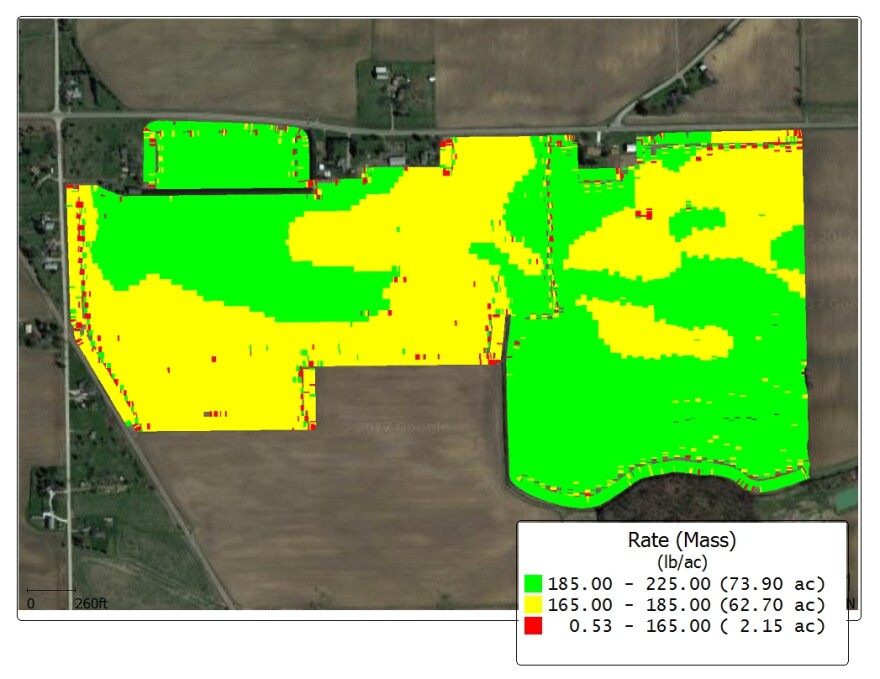Blooms of algae in Lake Erie have given rise to a toxin that got so bad three years ago, Toledo had to shut down its water system.
Fertilizer that runs off from farms, into rivers, and then into Lake Erie is a big reason those algal blooms exist.
But some farmers, like Laurie Isley and Jim Isley, are working to reduce that fertilizer contamination.
Laurie Isley is president of the Lenawee County Farm Bureau, and her husband Jim Isley was an early adopter of the Michigan Agricultural Environmental Assurance Program (MAEAP). Their farm near Palmyra, Michigan is MAEAP-verified and among a small percentage of farms using strip-tillage, a proven way to reduce fertilizer runoff and reduce soil erosion.
(See video of strip tillage on the Isley farm in action https://vimeo.com/203836226">here.)
Laurie said MAEAP is designed to provide farmers with a set of guidelines for how to be more environmentally-friendly.

“We wanted to be MAEAP verified… to show our friends, to show our neighbors that we are conscious of the environment,” Jim said. "And that we’re doing what we can to farm sustainably, not only for the environment, but also financially.”
The Isley Farm lies within the River Raisin watershed, which feeds into Lake Erie.
Not all farmers in their situation are as eager to play a role in protecting the lake.
“Sometimes I believe that it’s natural for a farmer to think that if it’s environmentally-friendly, that it may not be good for the bottom line,” Jim said. “And it’s our goal on this farm to show that yes, it can be both.”
Laurie said it’s sometimes hard to convince farmers to change their ways, especially when they’ve been following a specific routine for a really long time.
(Subscribe to the Stateside podcast on iTunes, Google Play, or with this RSS link)
“There are programs – government programs – that will do [fund] filter strips where there is some money available," she said. "That often is a pretty good incentive to get them to try something new."
Laurie said programs like that have led to some “pretty strong success” in the River Raisin watershed.
“There have been some tests run on the river that have shown a 40% reduction in the phosphorus,” she said. “But we’re just hoping that we can continue to do this voluntarily, because it has been declared as an impaired watershed by the State of Michigan, and we want to make sure that we take steps to make these improvements before those are mandated for us.”
That brings us back to the MAEAP – the Michigan Agricultural Environmental Assurance Program. It’s a program other states are starting to copy.
"Sometimes I believe that it's natural for a farmer to think that if it's environmentally-friendly, that it may not be good for the bottom line. And it's our goal on this farm to show that yes, it can be both."
Laurie said she thinks the program is special because farmers had a say in its design. It’s also based on science, and has a sustainability component.
“You don’t just do it once and then you have it forever,” she said. “It has to be reapplied for periodically, and if there are issues, then you can lose that verification.”
Since beginning the program, the Isley Farm has seen a “great” reduction in wind erosion and “substantial” increase in moisture retention, Jim said.
“There’s really no reason to apply fertilizer where it’s not used," he said. "So we’ve been able to cut back that way.”
As for the farm’s production, Jim said they haven’t seen any problems.
“I’m very, very encouraged with the strip tillage, with the variable-rate seeding" he said. "So far, it’s been very, very positive.”


